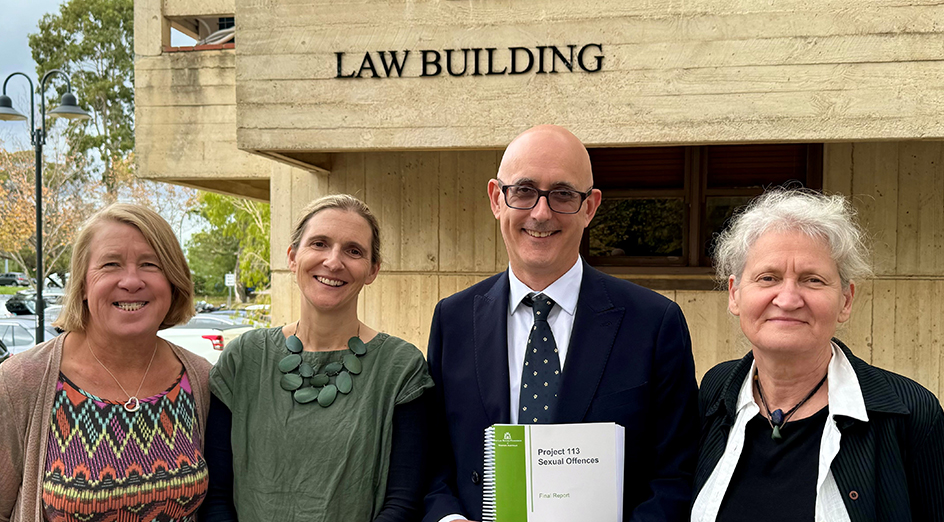Academics from the UWA Law School have contributed their expertise to a pivotal report on sexual offences, which is expected to drive significant improvements to laws dealing with sexual violence in Western Australia.
"We hope it will lead to significant improvements to the State's sexual offence laws, and will help to prevent and deter sexual violence, hold offenders accountable, and support victim-survivors throughout the criminal justice process."
Professor Sharon Mascher, UWA Law School Dean
The recent tabling in Parliament of the Law Reform Commission of Western Australia's Final Report on Project 113: Sexual Offences marks a significant milestone in the modernising of Western Australia's legal framework to better address sexual violence.
The landmark report, which concluded a review instigated in February 2022 by WA Attorney-General the Hon John Quigley MLA, included significant contributions from the UWA Law School and the broader UWA community, said principal author Dr Jamie Walvisch, a senior lecturer in the Law School.
"The report highlights the need for legislative changes to better reflect contemporary understandings of sexual violence and consent and makes comprehensive recommendations for reforming WA's sexual offence laws, including introducing an affirmative consent model," Dr Walvisch said.
"The current legal framework requires substantial reform to ensure that it is aligned with the lived realities of victim-survivors of sexual assaults and evolving societal norms - this report offers a blueprint for achieving such alignment."

Image: Professor Meredith Blake, Professor Sarah Murray, Dr Jamie Walvisch and Associate Professor Stella Tarrant with a copy of the landmark report.
Dr Walvisch's work was supported by a statistical analysis report by Associate Professor Joe Clare; a background paper co-authored by Associate Professor Stella Tarrant and Professor Hilde Tubex (with Professor Douglas from Melbourne Law School); and the research assistance of three Juris Doctor students from UWA: Sabine Singh, Simrin Panag and Ash Naismith.
Professor Meredith Blake and Dr Chantal Bourgault Du Coudray were members of the legal and community expert groups that provided guidance to the Commission, and Professor Sarah Murray was one of three Commissioners responsible for the report (with former Supreme Court judge the Honourable Lindy Jenkins and Kirsten Chivers from the State Solicitor's Office).
Professor Murray said a holistic and inclusive approach was taken during the drafting process.
"Our goal was to engage a broad spectrum of the community to ensure that the recommendations we propose are not only legally sound but also socially relevant," she said.
"We've listened to victim-survivors, legal experts, and community groups to capture a wide range of perspectives."
Dean of the Law School, Professor Sharon Mascher, said the report underscored the widespread issue of sexual violence, its profound impact on individuals and communities, and the urgent need for comprehensive legal reforms.
"We hope it will lead to significant improvements to the State's sexual offence laws, and will help to prevent and deter sexual violence, hold offenders accountable, and support victim-survivors throughout the criminal justice process," Professor Mascher said.
Dr Walvisch was also recently awarded the 2024 Australian Academy of Forensic Sciences Research Fellowship for his project Forensic Science in Court: A Systematic Review of Royal Commissions and Inquiries (1952-2023), which will examine issues that have arisen over the past 70 years from the use of forensic science in the courtroom.
By identifying recurring problems and making recommendations for reform, Dr Walvisch said he hoped to reduce the likelihood of miscarriages of justice linked to forensic science.
"Dr Walvisch's commitment to improving the intersection of forensic science and the judicial system, ensuring the accurate and effective use of scientific evidence in legal proceedings, not only advance legal knowledge but also foster meaningful reforms that benefit our society," Professor Mascher said.






